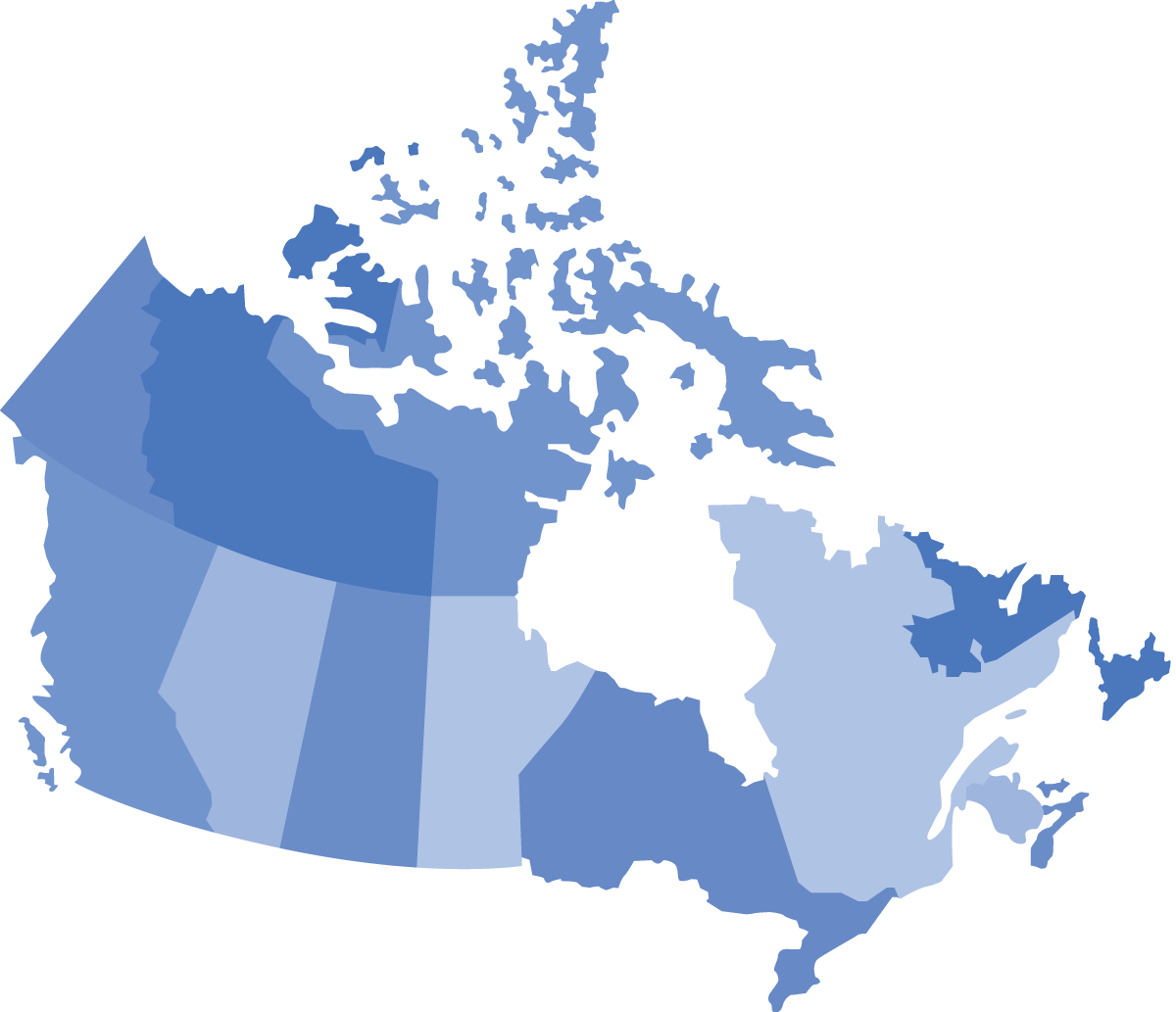-
Understanding Grief ›
-
- Truths about grief
- What grief looks and feels like
- Common challenges with grief
- Grieving before the loss
- Ideas for living with loss
- Grief triggers
- How long grief lasts
- How the loss affects families and others
- When life starts to get better
- Special dates
- Rituals, funerals, and memorials
- Do I need more help?
- Prolonged grief
-
-
Grieving a Death ›
-
Non-death Loss ›
-
Supporting Someone ›
-
Professionals & Volunteers ›
-
Resources & More ›
Grieving a pregnancy or infant loss
No matter how, where, or when pregnancy or infant loss occurs, it is significant. You may be grieving not only the loss of your baby, but also the loss of your future as a parent to this child, and the loss of hopes and dreams you held for them. The loss of your baby also impacts other important people in your life like your partner, parents, in-laws, siblings, and other children. Over time your grief will change but may not entirely go away. As your life continues, you may find it helpful to think of having an ongoing bond with your baby.
“The death of our first baby was the most significant loss of our lives. Nothing else has compared to that loss for us.”
You may have thought about being pregnant and having a baby for a long time. Once you became pregnant, you may have started imagining how your life would change. You may have started to form a relationship with your baby, which included your hopes, dreams, and feelings of love and attachment.
What impacts your grief
- Your unique relationship with your baby
- Your personality
- Your previous or new identity as a parent
- Other deaths or losses, especially pregnancy or infant losses
- Supports that you have
- How well your loss is recognized and understood
- The availability of answers or explanations about what happened
- Your feelings, such as disbelief, anger, guilt, or blame
- Medical termination -for a life-limiting condition or other reasons
- Continuing pregnancy following diagnosis of life-limiting illness
- Twin or multiple losses
- Recurrent pregnancy loss
- You may want to create ways you can remember, honour, and memorialize your baby. Including other family members or friends in these activities may also help them with their grief.
- Other people may be struggling with their own feelings and not know what to say or do to help you. If you can, it may help to be specific about what you need, for example:
- “I really want to talk about my baby today.”
- “I don’t want to talk about them today. Talk to me about something else.”
- Support groups with other people who have had a pregnancy or infant loss can be helpful, as can professional counselling.
- You and others around you may think that a new pregnancy will erase the grief of the lost one, but this is often not the case.
You may be unsure how best to support someone who is grieving a pregnancy or infant loss. It is important to know that you cannot take away their pain or “fix” it, but you can provide emotional support and practical help. Acknowledge the loss and the baby, show interest in legacy items and rituals, support their choices, and be a compassionate listener.
Children experience and express grief differently than adults, and their reactions can also be affected by their age and developmental stage. Some ideas for supporting children include:
- Being honest
- Reassuring them that their feelings are okay
- Considering their age and personality
- Asking for help from staff at their school, a grief counsellor, their physician, or another healthcare provider if needed
- Letting them know that it is okay to have lots of different feelings, and it is also okay not to have feelings
See also:
- MyGrief.ca Module 19 - Supporting the family
If you feel overwhelmed or “stuck” please talk to a health professional or trusted leader in your community such as a doctor, chaplain, nurse practitioner, social worker or school administrator. These trusted people may be able to connect you with appropriate programs, resources, and other forms of needed support such as grief counselling or medical care. You may be able to access counselling services if you have an Extended Health Plan, or through an employee assistance program. It will be important that they have experience in grief counselling. If you have thoughts of or plans to harm yourself or others, go to your nearest Emergency Department, call your local Crisis Line, or call or text 9-8-8 if you are in Canada. It is essential that you reach out for help.
See also:
- Do I need more help?
- MyGrief.ca Module 8 - Do I need more help and where to find it
Any pregnancy or infant death is a tremendous loss, and you will naturally grieve for your anticipated child and the hopes you had. It is important to give yourself the time and space that you need to grieve. Other people may also be struggling with their own feelings or may not know what to say or do to help you. You may want to consider support groups or professional counselling.
See also:
- MyGrief.ca Module 17 - Understanding your grief
- MyGrief.ca Module 18 - Navigating your grief
Video Gallery
Resources
Pregnancy and Infant Loss Series - When someone has experienced a pregnancy or infant loss, it can be difficult to know what to say or do. You cannot take away the pain, but you can help with your pre ... Read more
Pregnancy and Infant Loss Series - This module will provide you with some supportive strategies and gentle suggestions to help you navigate your grief during the first days, weeks, and beyond.
CaringTogether.life is a free platform designed to educate, support, and empower parents caring for a seriously ill child and those who are experiencing pregnancy or infant loss.
Have lists of resources in different parts of Quebec for those who have lost an infant or pregnancy. Resources consist mainly of support groups in different areas in Quebec.
Sections on grieving a perinatal loss, processing and growth, working with partners, birth trauma and future pregnancies.
Offer resources for families and professionals on PAIL. Can request peer support, and recruit Indigenous volunteers to offer peer support to Indigenous families.
Have resources for general twin loss (for twinless twins, parents, and counselors), early twin loss, helping bereaved families and individuals, sibling loss, and general grief. Also include recommende ... Read more
Have online support communities for parents to talk about their death of a baby or babies. Offer different groups for different types of loss.
Discusses medical information and possible options, meeting and saying goodbye to the baby, and taking care of yourself including grief and loss.
Goes through grief in children of different ages and how they may react to the news. Talks about how to talk to a child about PAIL, including how to answer difficult questions.
Aims to help children understand stillbirth or prenatal death, and possible feelings that a child may have about this.
Book talks about the anticipatory grief when someone knows that their child will only have a short life, and also the grief that can follow the death of the baby.
Divided into three sections after an abnormal fetal diagnosis, continuing the pregnancy, ending the pregnancy and healing.
For young children to help them understand the death of a baby, and addresses possible fears or guilt they may have. Includes messages for parents as well.
Talks about a families experience after their son was born with hypoplastic left heart syndrome and their experiences with anticipatory grief and grief after the death of their son.
Talks about grief related to the death of a baby, caused by a serious prenatal diagnosis, miscarriage, stillbirth, or the death of an infant.
Talks about different kinds of grief and loss relating to the death of a baby. Aims to help parents through feelings of anger, guilt and despair.
Talks about the death of a twin, due to premature labour and birth, stillbirth, twin-to-twin transfusion syndrome, and if the twin dies in the uterus. Discusses grieving a twin and how to tell a child ... Read more
App dedicated to pregnancy and infant loss resources, offering online support groups.
App dedicated to pregnancy and infant loss resources, offering online support groups.
Sections on grieving a perinatal loss, processing and growth, working with partners, birth trauma and future pregnancies.
Talks about the death of a twin, due to premature labour and birth, stillbirth, twin-to-twin transfusion syndrome, and if the twin dies in the uterus. Discusses grieving a twin and how to tell a child ... Read more
Aims to help children understand stillbirth or prenatal death, and possible feelings that a child may have about this.
Book talks about the anticipatory grief when someone knows that their child will only have a short life, and also the grief that can follow the death of the baby.
Divided into three sections after an abnormal fetal diagnosis, continuing the pregnancy, ending the pregnancy and healing.
For young children to help them understand the death of a baby, and addresses possible fears or guilt they may have. Includes messages for parents as well.
Talks about a families experience after their son was born with hypoplastic left heart syndrome and their experiences with anticipatory grief and grief after the death of their son.
Talks about grief related to the death of a baby, caused by a serious prenatal diagnosis, miscarriage, stillbirth, or the death of an infant.
Talks about different kinds of grief and loss relating to the death of a baby. Aims to help parents through feelings of anger, guilt and despair.
Discusses medical information and possible options, meeting and saying goodbye to the baby, and taking care of yourself including grief and loss.
Goes through grief in children of different ages and how they may react to the news. Talks about how to talk to a child about PAIL, including how to answer difficult questions.
Pregnancy and Infant Loss Series - When someone has experienced a pregnancy or infant loss, it can be difficult to know what to say or do. You cannot take away the pain, but you can help with your pre ... Read more
Pregnancy and Infant Loss Series - This module will provide you with some supportive strategies and gentle suggestions to help you navigate your grief during the first days, weeks, and beyond.
CaringTogether.life is a free platform designed to educate, support, and empower parents caring for a seriously ill child and those who are experiencing pregnancy or infant loss.
Have lists of resources in different parts of Quebec for those who have lost an infant or pregnancy. Resources consist mainly of support groups in different areas in Quebec.
Offer resources for families and professionals on PAIL. Can request peer support, and recruit Indigenous volunteers to offer peer support to Indigenous families.
Have resources for general twin loss (for twinless twins, parents, and counselors), early twin loss, helping bereaved families and individuals, sibling loss, and general grief. Also include recommende ... Read more
Have online support communities for parents to talk about their death of a baby or babies. Offer different groups for different types of loss.


